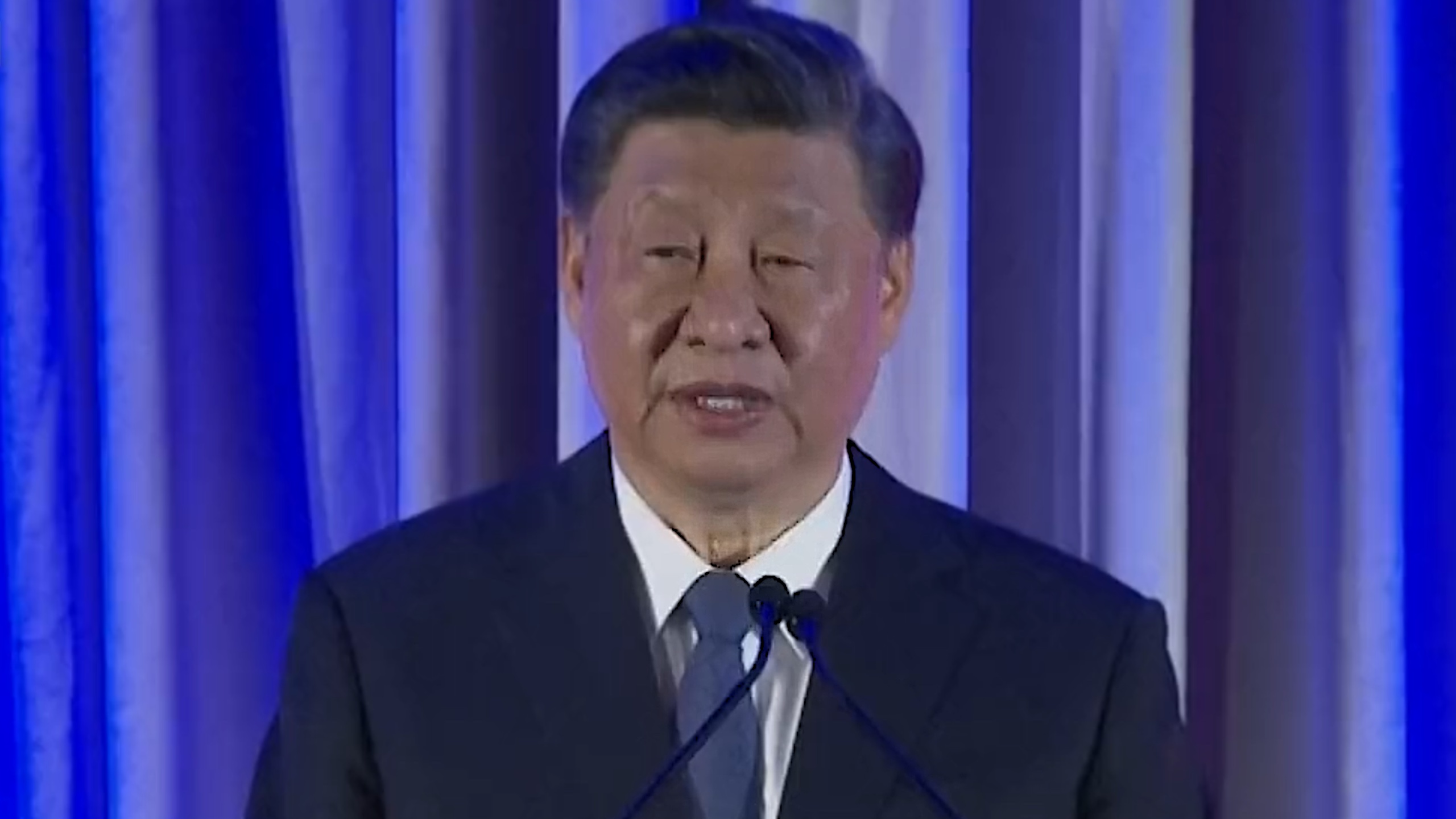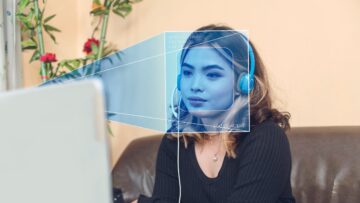
Chinese President Xi Jinping has fallen victim to AI deepfakes as an altered video of himself making a speech in English went viral on social media platforms.
Captioned in Chinese, “Xi Jinping’s English speech in San Francisco,” the one-minute video was posted on Facebook on Nov. 20.
The satiric video was altered to show him presenting in English during a US visit, misleading social media users into believing it was genuine.
Also read: Manila University Introduces Bachelor of Science in eSports Program
The altered speech
The video circulated on various social media platforms following President Jinping’s visit to the US, which ended on Nov. 17. This was the first visit in six years where he attended the Asia-Pacific Economic Cooperation (APEC) summit in San Francisco and met US President Joe Biden.
In their meeting, according to RTL Today, they agreed to revive the relationship between the two superpowers that have recently battled to bolster direct communication between them. This follows alleged geopolitical tensions spurred by the unfolding technological advances.
In the video, the Chinese first citizen appears to say: “If the other party is regarded as the primary competitor, the most significant geopolitical challenge, and the threat that is constantly pressing, it will inevitably lead to wrong policies, wrong actions, and wrong results.”
“China is willing to be a partner and friend with the United States. The fundamental principles for managing China-US relations are mutual respect, peaceful coexistence, and win-win cooperation.”
The speech continues with the Chinese President making an assurance that his country would never interfere with US internal affairs or harbor any ambitions to replace the US.
“China is happy to see a confident, open, and prosperous America. Likewise, the US should avoid reading Chinese books, should refrain from interfering in China’s internal affairs, and should embrace a peaceful, stable, and prosperous China,” continued the speech.
However, AFP discovered that this was an altered video, as the original was in Mandarin.
Video gets users talking
The video clip was shared “hundreds of times” on social media platforms like TikTok, captioned in English and other languages like Thai. Based on the captions, it appeared users were confident the video was genuine.
“When Xi Jinping gave a speech in fluent English, professional translators were preparing to lose their jobs,” commented one user.
Another said, “This is the first time I’ve heard Xi Jinping’s English! So he has a very British accent?”
While the AFP noted the original speech was done in Mandarin, they also did not find “any evidence that Xi has ever given a public address in English.”
Further searches also revealed the genuine speech uploaded on the X platform on the BBC Chinese page. In the video, Xi speaks in Mandarin. Additionally, the National Committee on US-China Relations also shared a complete video of the speech where the President spoke in Mandarin only.
中国国家主席习近平周三(11月15日)在加州参加由美中关系全国委员会和美中贸易全国委员会举办的一场晚宴。
在与美国总统拜登(Joe Biden)会晤后,习近平对美国的商界领袖发表了一场演讲。他称,中国“愿意同美国做伙伴、做朋友”。… pic.twitter.com/K0pSkTdj4E
— BBC News 中文 (@bbcchinese) November 16, 2023
The mistranslations
The AI-generated video is full of errors, and according to RTL Today, the audio does not match lip movement in some parts of the clip.
In another example, when President Jinping talks about the US and China viewing each other as threats, he appears to say, “It will inevitably lead to wrong policies, wrong actions, and wrong results.”
However, an official translation by Xinhua News Agency reveals him saying it will “only lead to misinformed policy-making, misguided actions, and unwanted results.”
Another mistake is when Jinping appears to say, “China does not read books from the US,” and “likewise, the US should avoid reading Chinese books.”
The official transcript shows that Jinping says “China never bets against the United States” and “likewise, the US should not bet against China.”
The AI video confuses Chinese phrases “賭輸”, which is pronounced as “dǔ shū” and means to lose a bet, with “讀書” pronounced as “dú shū,” which is to read books.
[embedded content]
- SEO Powered Content & PR Distribution. Get Amplified Today.
- PlatoData.Network Vertical Generative Ai. Empower Yourself. Access Here.
- PlatoAiStream. Web3 Intelligence. Knowledge Amplified. Access Here.
- PlatoESG. Carbon, CleanTech, Energy, Environment, Solar, Waste Management. Access Here.
- PlatoHealth. Biotech and Clinical Trials Intelligence. Access Here.
- Source: https://metanews.com/social-media-users-misled-as-fake-xi-jinping-video-goes-viral/
- :has
- :is
- :not
- :where
- 10
- 15%
- 16
- 17
- 20
- 2023
- 7
- a
- About
- According
- actions
- Additionally
- address
- advances
- Affairs
- AFP
- against
- agreed
- AI
- alleged
- also
- altered
- ambitions
- america
- an
- and
- Another
- any
- appeared
- appears
- ARE
- AS
- assurance
- At
- audio
- avoid
- based
- bbc
- BE
- believing
- Bet
- Bets
- between
- biden
- bolster
- Books
- British
- by
- captions
- challenge
- China
- Chinas
- chinese
- citizen
- commented
- committee
- Communication
- competitor
- confident
- constantly
- content
- continued
- continues
- cooperation
- country
- deepfakes
- DID
- Dinner
- direct
- discovered
- does
- done
- during
- each
- Economic
- embedded
- embrace
- ended
- English
- Errors
- esports
- EVER
- evidence
- example
- Fallen
- Find
- First
- first time
- following
- follows
- For
- Francisco
- friend
- from
- full
- fundamental
- gave
- genuine
- geopolitical
- given
- happy
- harbor
- Have
- he
- heard
- him
- himself
- his
- HTML
- HTTPS
- in
- inevitably
- interfere
- interfering
- internal
- Internal Affairs
- into
- Introduces
- IT
- Jinping
- Jobs
- Languages
- lead
- like
- lose
- Making
- mandarin
- Match
- means
- Media
- meeting
- met
- misguided
- misleading
- mistake
- most
- movement
- mutual
- National
- never
- news
- noted
- nov
- November
- of
- official
- on
- ONE
- only
- open
- or
- original
- Other
- page
- partner
- parts
- party
- phrases
- platform
- Platforms
- plato
- Plato Data Intelligence
- PlatoData
- policies
- policy-making
- posted
- preparing
- president
- pressing
- primary
- principles
- professional
- pronounced
- prosperous
- public
- Read
- Reading
- recently
- regarded
- relations
- relationship
- replace
- respect
- Results
- Revealed
- Reveals
- Revive
- s
- Said
- San
- San Francisco
- say
- saying
- says
- Science
- searches
- see
- shared
- should
- show
- Shows
- significant
- SIX
- So
- Social
- social media
- social media platforms
- some
- Speaks
- speech
- stable
- States
- Summit
- Talks
- technological
- thai
- that
- The
- their
- Them
- they
- this
- threat
- threats
- tiktok
- time
- to
- today
- Transcript
- Translation
- true
- two
- unfolding
- United
- United States
- university
- unwanted
- uploaded
- us
- US President
- User
- users
- various
- very
- Victim
- Video
- viewing
- viral
- Visit
- was
- went
- were
- when
- which
- will
- willing
- Win-Win
- with
- would
- Wrong
- X
- xi
- xi jinping
- years
- youtube
- zephyrnet













